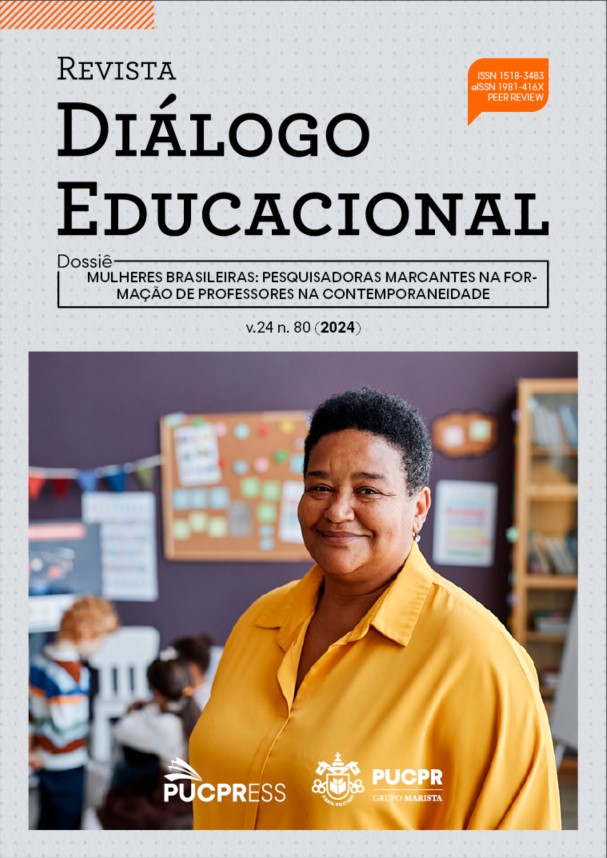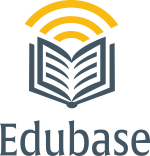Experiência dos professores universitários durante a Pandemia da Covid-19
uma revisão sistemática da literatura
DOI:
https://doi.org/10.7213/1981-416X.24.080.AO13Resumo
A vida dos professores universitários foi significativamente impactada pela pandemia da Covid-19, o que resultou em alteração da satisfação e estresse desses profissionais. O objetivo desta pesquisa foi analisar a produção científica, por meio de uma revisão sistemática, sobre o impacto da pandemia no bem-estar do professor universitário. Após a busca por artigos em bases de dados, critérios de exclusão foram aplicados e restaram 42 artigos científicos para análise. A maioria dos artigos científicos está escrito em inglês e advém dos Estados Unidos, assim como, possuem abordagem quantitativa. Os resultados demonstraram que houve mais, em número e intensidade, desafios e dificuldades observados do que benefícios e oportunidades. No que tange aos benefícios, novas oportunidades de colaboração em pesquisa, mais atenção à saúde, e desenvolvimento profissional do docente. A rede de apoio profissional e familiar foi citada como um benefício durante a pandemia, e quando não percebida, como uma dificuldade. No que tange aos desafios, professores precisaram reformular suas aulas, metodologias de ensino, adaptar-se às tecnologias e engajar os alunos, o que aumentou a carga de trabalho significativamente. Por fim, apresentam-se informações necessárias para que Instituições de Ensino Superior possam desenvolver políticas que ajudem os professores a enfrentarem esses desafios, em busca da manutenção ou melhoria da qualidade do ensino superior.
Downloads
Referências
ABID, T. et al. Online Teaching Experience during the COVID-19 in Pakistan: Pedagogy–Technology Balance and Student Engagement. Fudan Journal of the Humanities and Social Sciences, v. 14, n. 3, p. 367–391, 2021.
ACOSTA ÁLVAREZ, C. L.; ORTEGA GONZÁLEZ, D.; DÍAZ CRUZ, Y. Educación presencial con mediación virtual: una experiencia de Honduras en tiempos de la COVID-19. Revista Digital de Investigación en Docencia Universitaria, v. 14, n. 2, p. e1229–e1229, 2020.
ALQAHTANI, J. S. et al. Teaching faculty perceptions, attitudes, challenges, and satisfaction of online teaching during COVID-19 pandemic in Saudi Arabia: A national survey. Frontiers in Education, v. 7, 2022.
ANTÓN-SANCHO, Á. et al. Digital Pandemic Stress in Higher Education in Venezuela. European Journal of Investigation in Health, Psychology and Education, v. 12, n. 12, p. 1878–1900, 2022.
BAEK, S. et al. The most downloaded and most cited articles in radiology journals: a comparative bibliometric analysis. European Radiology, v. 28, n. 11, p. 4832–4838, 2018.
BALSECA CÓRDOVA, L. et al. Formación de tutoras y tutores virtuales. Una experiencia educativa desde el punto de vista de los capacitadores. Revista Andina de Educación, v. 4, n. 2, p. 1–10, 2021.
BANDA, R. M.; REYES, G. Caring for students by caring for ourselves first: comadre co-teaching during times of crisis. Teaching in Higher Education, 2022.
BARRAGÃN DE ANDA, A. B. et al. Ambientes híbridos de aprendizaje en estudios de posgrado. Revista Iberoamericana de Tecnología en Educación y Educación en Tecnología, n. 28, p. 149–156, 2021.
BARREDO, R. et al. Stress and Stressors: The Impact of the COVID-19 Pandemic on Students, Faculty and Staff at a Historically Black College/University. Journal of Community Health, 2022.
BELIKOV, O. et al. Professional and personal impacts experienced by faculty stemming from the intersection of the covid-19 pandemic and racial tensions. Journal of Interactive Media in Education, v. 2021, n. 1, 2021.
BENITO, Á. et al. Changes that should remain in higher education post COVID-19: A mixed-methods analysis of the experiences at three universities. Higher Learning Research Communications, v. 11, p. 51–75, 2021.
BORSOI, I. C. F. Trabalho e produtivismo: saúde e modo de vida de docentes de instituições públicas de Ensino Superior. Cadernos de Psicologia Social do Trabalho, v. 15, n. 1, p. 81-100, 2012.
BOTERO-GOMEZ, V. et al. A Model to Assess the Adoption of e-Learning Tools by Professors in the Context of COVID-19. Revista Iberoamericana de Tecnologias del Aprendizaje, v. 17, n. 3, p. 270–278, 2022.
BOYER-DAVIS, S.; BERRY, K. Technostress Creators in Higher Education During the Covid-19 Pandemic: A Comparison of Faculty Perceptions and Experiences. Journal of Higher Education Theory and Practice, v. 22, n. 10, p. 1–16, 2022.
CALVO-PAZ, M. et al. Equilibrio ocupacional durante el confinamiento por Covid-19 en docentes de terapia ocupacional de una institución universitaria. Cadernos Brasileiros de Terapia Ocupacional, v. 30, p. e3242–e3242, 2022.
CAPUTO, J. L. et al. Faculty perceptions of the exercise science student learning experience during the coronavirus pandemic. Advances in Physiology Education, v. 45, n. 4, p. 829–834, 2021.
CARMO, R. O. L.; FRANCO, A. P. Da docência presencial à docência online: aprendizagens de professores universitários na educação a distância. Educação em Revista, v. 35, 2019.
CASALI, A.; TORRES, D. Impacto del COVID-19 en docentes universitarios argentinos: cambio de practicas, dificultades y aumento del estress. Revista Iberoamericana de Tecnología en Educación y Educación en Tecnología, n. 28, p. 423–431, 2021.
CHIERICHETTI, M.; BACKER, P. Exploring faculty perspectives during emergency remote teaching in engineering at a large public university. Education Sciences, v. 11, n. 8, 2021.
CORDERO CORDERO, T. Malestares y adaptaciones positivas de docentes de la Universidad de Costa Rica en tiempos de Pandemia por COVID-19. Actualidades Investigativas en Educación, v. 22, n. 3, p. 95–129, 2022.
CREELY, E. et al. University teachers’ well-being during a pandemic: the experiences of five academics. Research Papers in Education, v. 37, n. 6, p. 1241–1262, 2022.
DADHICH, M. et al. Impact of Covid-19 on Teaching-Learning Perception of Faculties and Students of Higher Education in Indian Purview. Journal of Mobile Multimedia, v. 18, n. 4, p. 957–980, 2022.
DAVIS, J. C. et al. Are we failing female and racialized academics? A Canadian national survey examining the impacts of the COVID-19 pandemic on tenure and tenure-track faculty. Gender, Work and Organization, v. 29, n. 3, p. 703–722, 2022.
DE LOS HEROS RONDENIL, M. G.; MURILLO LÓPEZ, S. C.; SOLANA VILLANUEVA, N. Satisfacción laboral en tiempos de pandemia: el caso de docentes universitarios del área de salud. Revista de Economía del Caribe, n. 26, p. 1–21, 2020.
DE PAULA, W. et al. Examining the mental health of the academic community at an institution for higher education during the COVID-19 pandemic. Psychology, Health and Medicine, 2022.
DOCKA-FILIPEK, D.; STONE, L. B. Twice a “housewife”: On academic precarity, “hysterical” women, faculty mental health, and service as gendered care work for the “university family” in pandemic times. Gender, Work and Organization, v. 28, n. 6, p. 2158–2179, 2021.
DUNN, M. et al. Academia During the Time of COVID-19: Examining the Voices of Untenured Female Professors in STEM. Journal of Career Assessment, v. 30, n. 3, p. 573–589, 2022.
GALVÃO, M. C. B; RICARTE, I. L. M. Revisão sistemática de literatura:
conceituação, produção e publicação. Logeion. 2020.
GOMEZ, B. G.; COCA, J. R.; MESQUITA, C. Teacher’s perspective in a challenging pandemic scenario. Aula Abierta, v. 51, n. 2, p. 181–190, 2022.
GRANT, Maria J.; BOOTH, Andrew. A typology of reviews: an analysis of 14 review types and associated methodologies. Health information & libraries journal, v. 26, n. 2, p. 91-108, 2009.
HODGES, C. B.; MOORE, S.; LOCKEE, B. B.; TRUST, T.; BOND, M. A. The difference between emergency remote teaching and online learning. Online: EDUCAUSE Review, 2020.
JARAB, F. et al. Faculties’ Satisfaction With Distance Education During COVID-19 Outbreak in Jordan. Frontiers in Education, v. 7, 2022.
JOHNSON, D. S.; KLINE, A. Brief Report: Exploring the Experiences of Women Faculty with Caregiving Responsibilities during the Onset of COVID-19. Public Integrity, 2022.
KHANFAR, A. R. Faculty’s Satisfaction Degree of Distance Training on Using Blogs in Teaching During the Pandemic. Studies in Systems, Decision and Control, v. 216, p. 637–651, 2023.
MANCEBO, D. Agenda de pesquisa e opções teórico-metodológicas nas investigações sobre trabalho docente. Educ. Soc., Campinas, vol. 28, n. 99, p. 466- 482, 2007.
MANOKORE, V.; KUNTZ, J. Replication or Reinvention: Educators’ Narratives on Teaching in Higher Education during the COVID-19 Pandemic. Higher Learning Research Communications, v. 12, n. 1, p. 1–27, 2022.
MELO, D.; SERVA, M. A agenda do professor-pesquisador em Administração: uma análise baseada na sociologia da ciência. Cadernos EBAPE. BR, v. 12, p. 605-632, 2014.
MOHER, David et al. Preferred reporting items for systematic review and meta-analysis protocols (PRISMA-P) 2015 statement. Systematic reviews, v. 4, n. 1, p. 1-9, 2015.
RAMOS SALAZAR, L. et al. The Mediating Effects of Social Comparison on Faculty Burnout, Teaching Anxiety, and Satisfaction Among Faculty Who Taught During the COVID-19 Pandemic. Trends in Psychology, 2022.
RAVEH, I.; MORAD, S.; SHACHAM, M. Sense of Competence and Feelings of Stress of Higher Education Faculty in the Transition to Remote Teaching: What Can We Learn from COVID-19 Pandemic in the Long Run. Sustainability (Switzerland), v. 15, n. 5, 2023.
SALES, M. P. S. Trabalho docente na educação superior: uma análise a partir da Teoria das Representações Sociais e Ergologia. Tese (Doutorado em Educação) – Universidade Federal de Pernambuco, Recife, 2017.
SANTOS, G. M. R. F. DOS; SILVA, M. E. DA; BELMONTE, B. DO R. COVID-19: emergency remote teaching and university professors’ mental health. Revista Brasileira de Saúde Materno Infantil, v. 21, n. suppl 1, p. 237–243, 2021.
SCHMIEDEHAUS, E. et al. The great resignation in higher education: An occupational health approach to understanding intentions-to-quit for faculty in higher education. Teaching and Teacher Education, v. 123, 2023.
SERVÍN, M. DE A. et al. Perception of professors regarding the transition to emergency remote teaching in a large public university in Mexico during the pandemic. Educação e Pesquisa, v. 48, 2022.
SEZEN-BARRIE, A. et al. Research and Scholarship During the COVID-19 Pandemic: A Wicked Problem. Innovative Higher Education, 2022.
SILVA, C. C. S. C. da; TEIXEIRA, C. M. S. O uso das tecnologias na educação: os desafios frente à pandemia da COVID-19. Brazilian Journal of Development, v. 6, n. 9, p. 70070-70079, 2020.
TARDIF, M.; LESSARD, C. O trabalho docente elementos para uma teoria da docência como profissão de interações humanas. 5.ed. Petrópolis: Vozes, 2009.
VELEZ-CRUZ, R. J.; HOLSTUN, V. P. Pandemic impact on higher education faculty self-care, burnout, and compassion satisfaction. Journal of Humanistic Counseling, v. 61, n. 2, p. 118–127, 2022.
VELTEN, D. B.; THOMES, C. R.; MIOTTO, M. H. M. DE B. Presença de ansiedade em docentes universitários do curso de Odontologia da Universidade Federal do Espírito Santo em tempos de pandemia. Revista de Odontologia da UNESP, v. 51, 2022.
VILELLA, S. B. et al. Conciliación trabajo-familia y salud psicosocial en los inicios del COVID-19 Un estudio piloto con profesores y no profesores. Perfiles Educativos, v. 43, n. 174, p. 26–41, 2021.
WANDERLEY, L. E. W. O que é universidade. São Paulo: Brasiliense, 2017.
WINTERS, J. R. DA F. et al. Remote teaching during the COVID-19 pandemic: repercussions from professors’ perspective. Revista Brasileira de Enfermagem, v. 76, n. 1, p. e20220172–e20220172, 2023.
ZAMORA-ANTUÑANO, M. A. et al. Analysis of emergency remote education in COVID-19 crisis focused on the perception of the teachers. Sustainability (Switzerland), v. 13, n. 7, 2021.
ZIZKA, L.; PROBST, G. Teaching during COVID-19: faculty members’ perceptions during and after an “exceptional” semester. Journal of International Education in Business, v. 15, n. 2, p. 202–220, 2022.
Downloads
Publicado
Como Citar
Edição
Seção
Licença
Copyright (c) 2023 Editora Universitária Champagnat

Este trabalho está licenciado sob uma licença Creative Commons Attribution 4.0 International License.
O(s) autor(es) transfere(m), por meio de cessão, à EDITORA UNIVERSITÁRIA CHAMPAGNAT, pessoa jurídica de direito privado, inscrita no CNPJ/MF sob o n.º 76.659.820/0009-09, estabelecida na Rua Imaculada Conceição, n.º 1155, Prado Velho, CEP 80.215-901, na cidade de Curitiba/PR, os direitos abaixo especificados e se compromete a cumprir o que segue:
- Os autores afirmam que a obra/material é de sua autoria e assumem integral responsabilidade diante de terceiros, quer de natureza moral ou patrimonial, em razão de seu conteúdo, declarando, desde já, que a obra/material a ser entregue é original e não infringe quaisquer direitos de propriedade intelectual de terceiros.
- Os autores concordam em ceder de forma plena, total e definitiva os direitos patrimoniais da obra/material à EDITORA UNIVERSITÁRIA CHAMPAGNAT, a título gratuito e em caráter de exclusividade.
- A CESSIONÁRIA empregará a obra/material da forma como melhor lhe convier, de forma impressa e/ou on line, inclusive no site do periódico da EDITORA UNIVERSITÁRIA CHAMPAGNAT, podendo utilizar, fruir e dispor do mesmo, no todo ou em parte, para:
- Autorizar sua utilização por terceiros, como parte integrante de outras obras.
- Editar, gravar e imprimir, quantas vezes forem necessárias.
- Reproduzir em quantidades que julgar necessária, de forma tangível e intangível.
- Adaptar, modificar, condensar, resumir, reduzir, compilar, ampliar, alterar, mixar com outros conteúdos, incluir imagens, gráficos, objetos digitais, infográficos e hyperlinks, ilustrar, diagramar, fracionar, atualizar e realizar quaisquer outras transformações, sendo necessária a participação ou autorização expressa dos autores.
- Traduzir para qualquer idioma.
- Incluir em fonograma ou produção audiovisual.
- Distribuir.
- Distribuir mediante cabo, fibra ótica, satélite, ondas ou qualquer outro sistema que permite ao usuário realizar a seleção da obra ou produção para recebê-la em tempo e lugar previamente determinados por quem formula a demanda e nos casos em que o acesso às obras ou produções se faça por qualquer sistema que importe em pagamento pelo usuário.
- Incluir e armazenar em banco de dados, físico, digital ou virtual, inclusive nuvem.
- Comunicar direta e/ou indiretamente ao público.
- Incluir em base de dados, arquivar em formato impresso, armazenar em computador, inclusive em sistema de nuvem, microfilmar e as demais formas de arquivamento do gênero;
- Comercializar, divulgar, veicular, publicar etc.
- Quaisquer outras modalidades de utilização existentes ou que venham a ser inventadas.
- Os autores concordam em conceder a cessão dos direitos da primeira publicação (ineditismo) à revista, licenciada sob a CREATIVE COMMONS ATTRIBUTION LICENSE, que permite o compartilhamento do trabalho com reconhecimento da autoria.
- Os autores autorizam a reprodução e a citação de seu trabalho em repositórios institucionais, página pessoal, trabalhos científicos, dentre outros, desde que a fonte seja citada.
- A presente cessão é válida para todo o território nacional e para o exterior.
- Este termo entra em vigor na data de sua assinatura e é firmado pelas partes em caráter irrevogável e irretratável, obrigando definitivamente as partes e seus sucessores a qualquer título.
- O não aceite do artigo, pela EDITORA UNIVERSITÁRIA CHAMPAGNAT, tornará automaticamente sem efeito a presente declaração.













